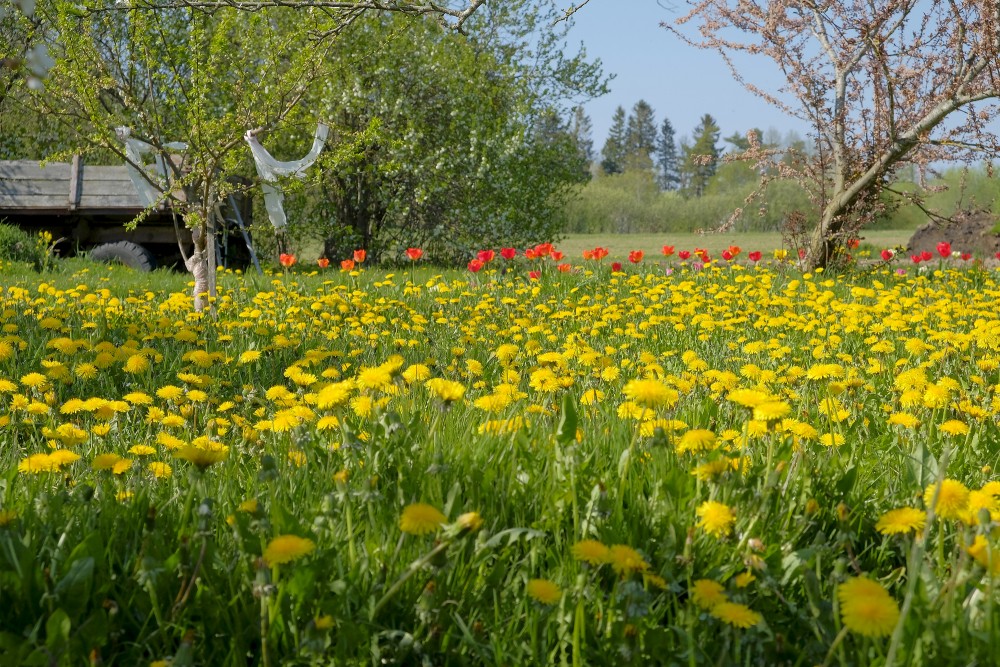Latvia urban gardens community farming is transforming cities into greener, healthier, and more connected places. People across Riga are reclaiming empty lots, unused land, and neglected corners to grow food, flowers, and friendships. These gardens reduce stress, promote healthy lifestyles, and offer a powerful way to reconnect with nature. Moreover, they bring people together across generations and backgrounds, strengthening communities. Residents no longer wait for top-down solutions. Instead, they plant, build, and nurture change themselves. Latvia’s cities, especially Riga, now see gardens not just as decoration but as essential urban infrastructure. With food security and climate issues rising, these green spaces are more important than ever.
Sporta Pils Gardens: A Riga Success Story
One of the best-known examples of Latvia urban gardens community farming is Sporta Pils Gardens in central Riga. What was once a vacant, crumbling lot is now a thriving garden with more than 150 active plots. Community members of all ages grow vegetables, herbs, and flowers in raised beds. These plots are designed to be accessible for everyone, including people with reduced mobility. Volunteers built everything from the ground up using sustainable and low-cost methods. The garden also hosts workshops, seasonal events, and cultural activities that strengthen the local social fabric. People share tools, seeds, compost, and stories. Sporta Pils is a shining model of how community farming can rejuvenate both land and people.
Key highlights of Sporta Pils Gardens:
-
150+ community plots with raised beds
-
Designed for all ages and mobility levels
-
Hosts events, workshops, and seasonal festivals
-
Built and maintained by local volunteers
-
Encourages shared tools, resources, and knowledge
Urban Meadows: Native Beauty with Purpose
Another growing trend in Latvia urban gardens community farming is the rise of urban meadows. Instead of high-maintenance lawns, Riga is embracing wildflower-filled green spaces that support biodiversity and improve the cityscape. These meadows attract pollinators like bees and butterflies and bring back native plants. Community involvement is key—residents help choose locations, plant seeds, and maintain the meadows throughout the year. Schools also participate by using the meadows for outdoor learning and environmental education. In addition to their beauty, these spaces help with stormwater control and improve soil health. Urban meadows are not only ecological havens but also tools for teaching sustainable values. They reflect Latvia’s growing environmental awareness and love for nature.
Benefits of Riga’s urban meadows:
-
Supports pollinators and native biodiversity
-
Involves local residents and schools in planting
-
Improves soil health and reduces runoff
-
Turns underused areas into colorful green zones
-
Teaches environmental stewardship and ecology
Innovation in Urban Farming: Vertical Gardens and Rooftop Projects
Latvia urban gardens community farming continues to innovate with creative use of urban space. Vertical gardens are appearing on walls and balconies across Riga, especially in areas with limited ground space. Rooftop farming is gaining popularity, with some buildings now growing food above the streets. These projects show how even dense urban areas can contribute to local food production. Students, architects, and activists are experimenting with modular systems and hydroponic setups. Some restaurants now grow herbs directly on their roofs for fresh harvests. These approaches combine function and beauty, turning dull surfaces into living walls. By thinking vertically, Latvia is finding new space for nature in the heart of the city.
Innovative urban farming formats include:
-
Rooftop gardens and restaurants growing fresh herbs
-
Vertical green walls in compact urban environments
-
Hydroponic systems for water-efficient food production
-
Experimental projects by students and architects
-
Creative reuse of balconies, rooftops, and fences
Social and Environmental Impact
The impact of Latvia urban gardens community farming goes far beyond fresh vegetables. These gardens reduce social isolation and give people a reason to spend time outside. They offer emotional benefits, lower anxiety, and encourage physical activity. Green spaces help clean the air and provide habitat for birds and insects. As cities get hotter and more crowded, gardens help cool neighborhoods and absorb rainwater. They also provide safe, friendly places for children to play and elders to gather. Everyone can participate, regardless of age or income. Most importantly, they reconnect people with food and with each other. Latvia’s urban gardens are building a healthier society from the ground up.
Positive impacts of community gardens:
-
Improved mental and physical health
-
Cleaner air and increased biodiversity
-
Stronger neighborhood connections
-
Safe, inclusive gathering places
-
Educational opportunities for children and adults
Challenges and Legal Barriers
Despite their popularity, Latvia urban gardens community farming projects still face legal and structural challenges. Many operate on temporary permits or informal arrangements. In some areas, city regulations make it hard to get long-term access to public land. Heritage zones often have restrictions on what can be built or grown. This uncertainty makes planning and investment difficult for community organizers. However, support is growing. More municipalities now recognize the benefits of community gardens and are working to integrate them into urban planning. The success of Sporta Pils has shown what’s possible when cities and citizens cooperate. With clear policy support, urban farming in Latvia can grow even further.
Current challenges include:
-
Lack of long-term land access or ownership
-
Legal restrictions in heritage or central zones
-
Limited municipal infrastructure or funding
-
Uncertainty for future development or expansion
-
Need for stronger policy support and recognition
More Urban Gardens Across Riga and Latvia
Latvia urban gardens community farming is not limited to Riga alone. Many other locations across the country are seeing similar success. In the neighborhood of Āgenskalns, a community garden thrives on what used to be a trash-filled plot. Families now gather there to grow produce, host music nights, and teach kids about planting. In Mežaparks, residents have transformed small park corners into herbal gardens open to all. Even in smaller towns like Valmiera and Liepāja, urban gardens are emerging in schoolyards, churchyards, and abandoned lots.
Examples of community gardens across Latvia:
-
Āgenskalns Garden: Family-friendly with composting and art events
-
Mežaparks Herb Corners: Public herbal gardens maintained by locals
-
Valmiera School Gardens: Teaching youth to grow, harvest, and cook
-
Liepāja Faith Garden: Church-led initiative to feed the elderly
-
Imanta Pocket Garden: Micro-garden project between apartment blocks
These places prove that Latvia urban gardens community farming is scalable, flexible, and adaptable to all kinds of spaces.
How to Start Your Own Urban Garden in Latvia
Anyone can take part in Latvia urban gardens community farming—even without experience. Getting started is often easier than people expect. First, identify an open or underused space in your neighborhood. Then, connect with local residents, school leaders, or NGOs interested in green initiatives. Gather a few volunteers and decide what kind of garden fits your community. Will it grow vegetables, herbs, or flowers? Will it serve families, seniors, or schools? Create a simple plan, apply for small grants or local approval, and begin.
Steps to launch a community garden:
-
Identify unused land or public green space
-
Form a small group of interested locals
-
Decide on the purpose and structure of the garden
-
Reach out to city officials for access or approval
-
Collect tools, seeds, and compost through donations or sponsors
-
Start planting and organizing regular community days
With even a little effort, small gardens can become powerful tools for change.
Latvia urban gardens community farming is more than a trend—it’s a vital part of sustainable urban life. It brings nature back into cities, reconnects people with their environment, and strengthens communities. Projects like Sporta Pils and the urban meadows show what’s possible with vision and collaboration. As innovation spreads through rooftops, balconies, and public parks, more citizens are getting involved. These gardens are changing how cities think about food, space, and social well-being. With growing public support and smart urban policies, Latvia can become a regional leader in green, inclusive city living. The seeds are planted, and the future looks vibrant, connected, and green.

